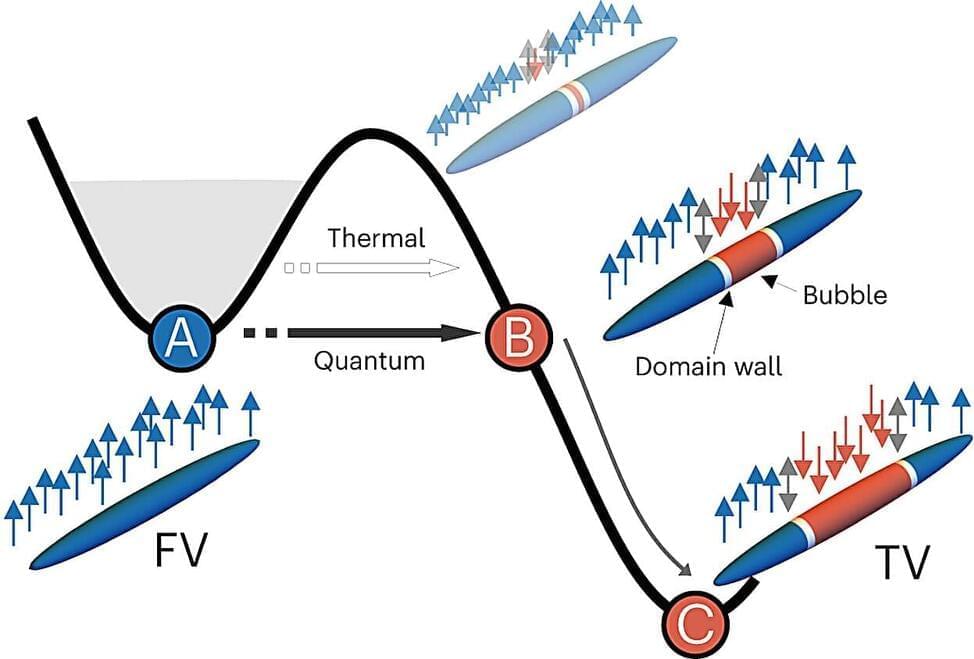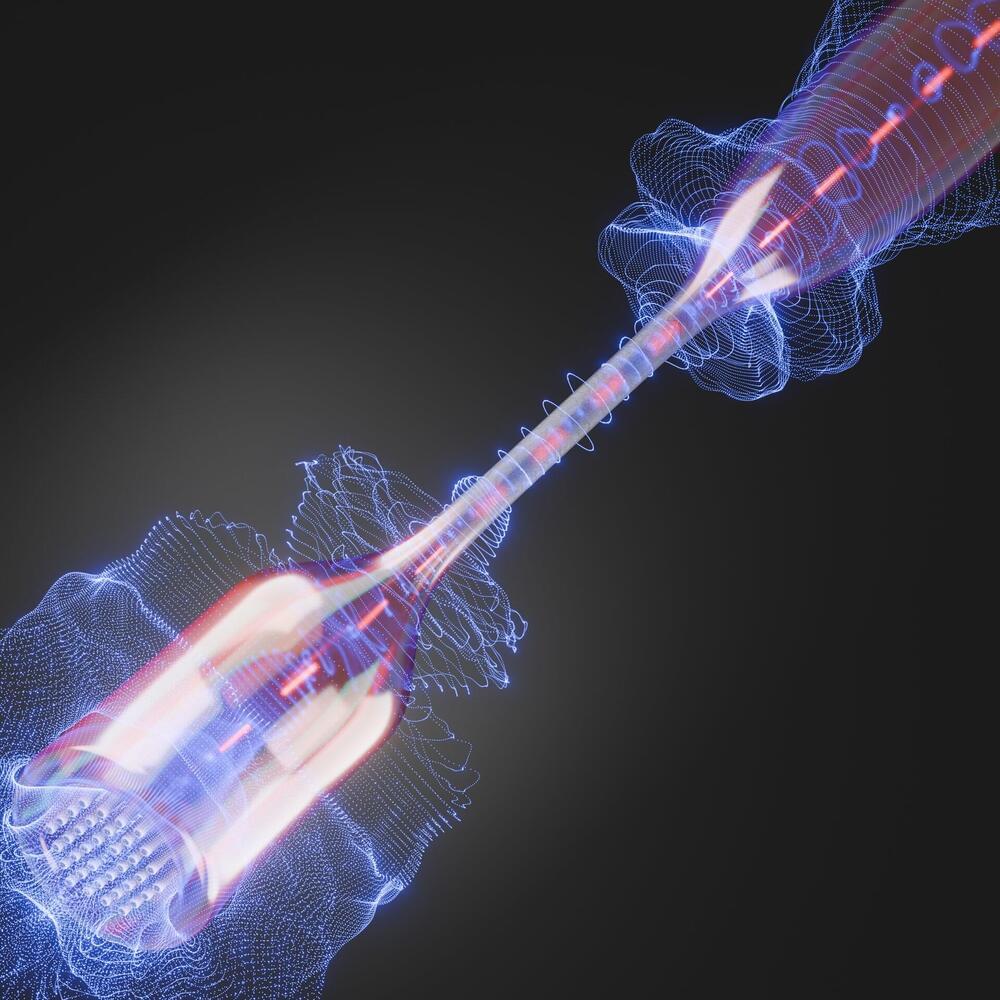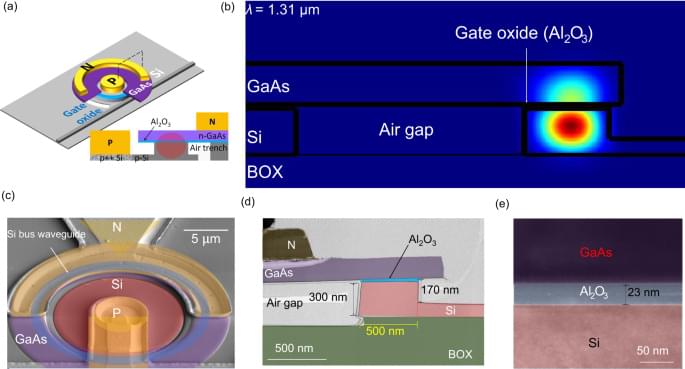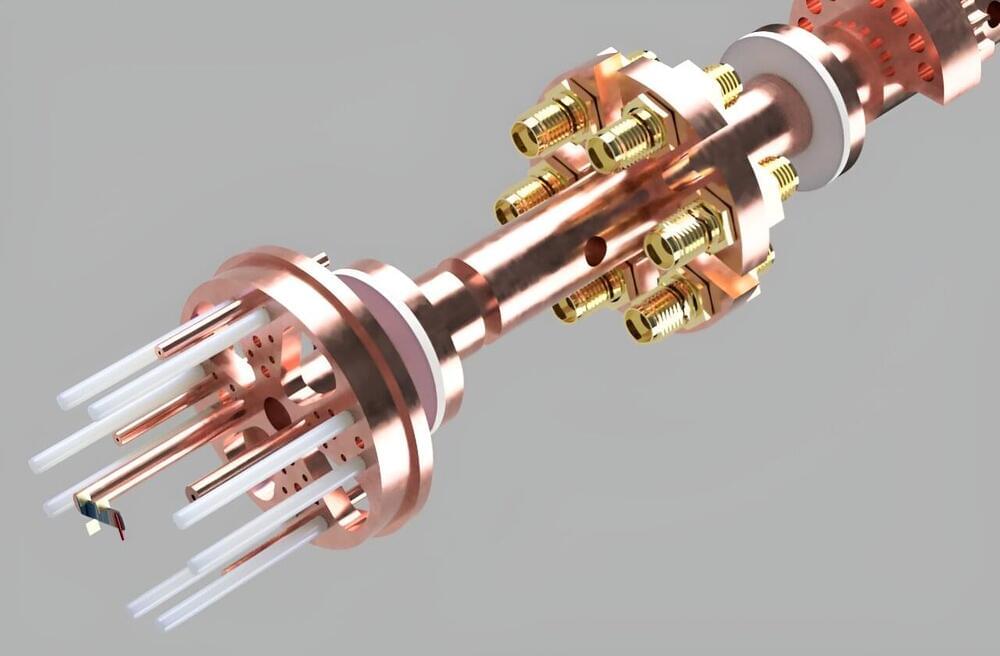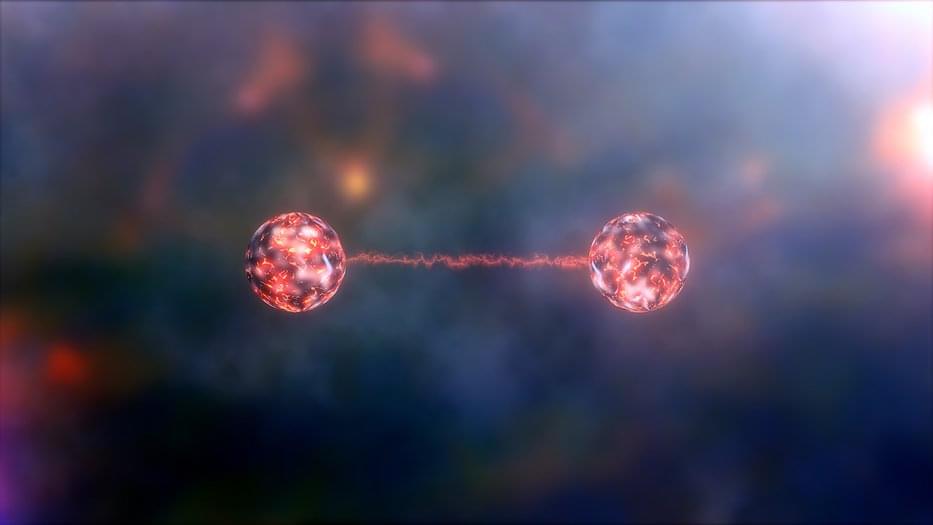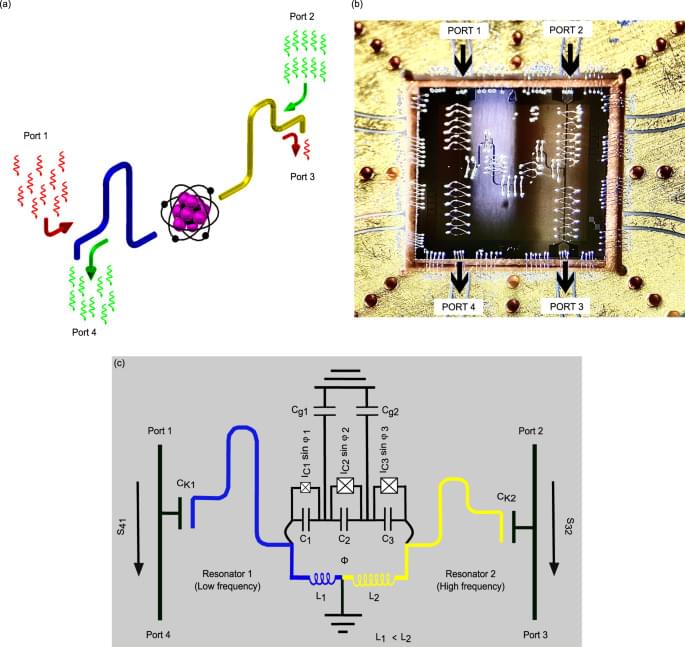Quantum engineering, a dynamic discipline bridging the fundamentals of quantum mechanics and established engineering fields has developed significantly in the past few decades. Two-level systems such as superconducting quantum bits are the building blocks of quantum circuits. Qubits of this type are currently the most researched and used in quantum computing applications1,2,3,4,5. The characteristics of the superconducting qubits such as eigen energies, non-linearity, coupling strengths etc. can be tailored easily by adjusting the design parameters6,7. Qubits have large non-linearity, which makes it possible to selectively address and control them1,3,7,8. This dynamic property makes superconducting qubits a strong candidate for plethora of applications. Other two-level microscopic quantum systems9,10,11,12,13,14 also have certain advantages and may be used in the future.
Quantum devices operate at low temperatures and require good isolation from external noises. Microwave devices, such as circulators and isolators, protect quantum circuits by unidirectionally routing the output signal, whilst simultaneously isolating noise from the output channel back to the quantum circuit. Their non-reciprocal character relies on the properties of ferrites15,16,17. Ferrite-based non-reciprocal devices are bulky15,16,17, and they cannot be positioned near the quantum circuit because they require strong magnetic fields. Although commercial ferrite based non-reciprocal devices harness high isolation and low insertion loss, their dependency on magnetic components limits the scalability of cryogenic quantum circuits15,16,18,19. Various ferrite-free approaches based on non-linear behavior of artificial atoms16, dc superconducting quantum interference devices (dc-SQUID)20,21, and arrays of Josephson junctions (JJ’s)19,22,23,24, have been experimentally demonstrated and implemented. Recently, a circuit based on semiconductor mixers has been used to realize a compact microwave isolator, which the authors claim could be extended to an on-chip device using Josephson mixers, although the “on-chip” demonstration is not yet reported25. Additionally, mesoscopic circulators exploiting the quantum Hall effect to break time-reversal symmetry of electrical transport in 2D systems are explored at a cost of larger magnetic fields deleterious to superconducting circuits18,26,27,28,29. More recently, a passive on-chip circulator based on three Josephson elements operating in charge-sensitive regime was demonstrated30. Such devices are frequently limited by their parameter regime, leaving them charge sensitive and therefore difficult to implement in a practical scenario. However, it is possible to mitigate the charge-sensitivity by carefully tuning the device parameters. Our device operates in a parameter regime that is not sensitive to charge fluctuations or charge parity switching, a fundamental requirement for any practical implementation, and requires small magnetic field. The reported device is a proof of concept (PoC), potentially useful in the applications relevant to microwave read-out components in the field of superconducting quantum circuits.
In this work, we present a robust and simple on-chip microwave diode demonstrating transmission rectification based on a superconducting flux qubit8. The concept of the device is shown in Fig. 1a. The flux qubit is inductively coupled to two superconducting resonators of different lengths with different coupling strengths. The design details are reported later in this section. Probing the qubit at the half-flux (degeneracy point) with one tone-spectroscopy, we observe identical patterns of transmission coefficient for signals propagating in the opposite directions, which are shifted by 5 dB in power. This shift indicates the non-reciprocal behaviour in our device, expressed in terms of transmission rectification ratio ® in this article. The origin of this effect is the non-linearity of the flux qubit, which controls the transmission coefficient of the whole structure.


